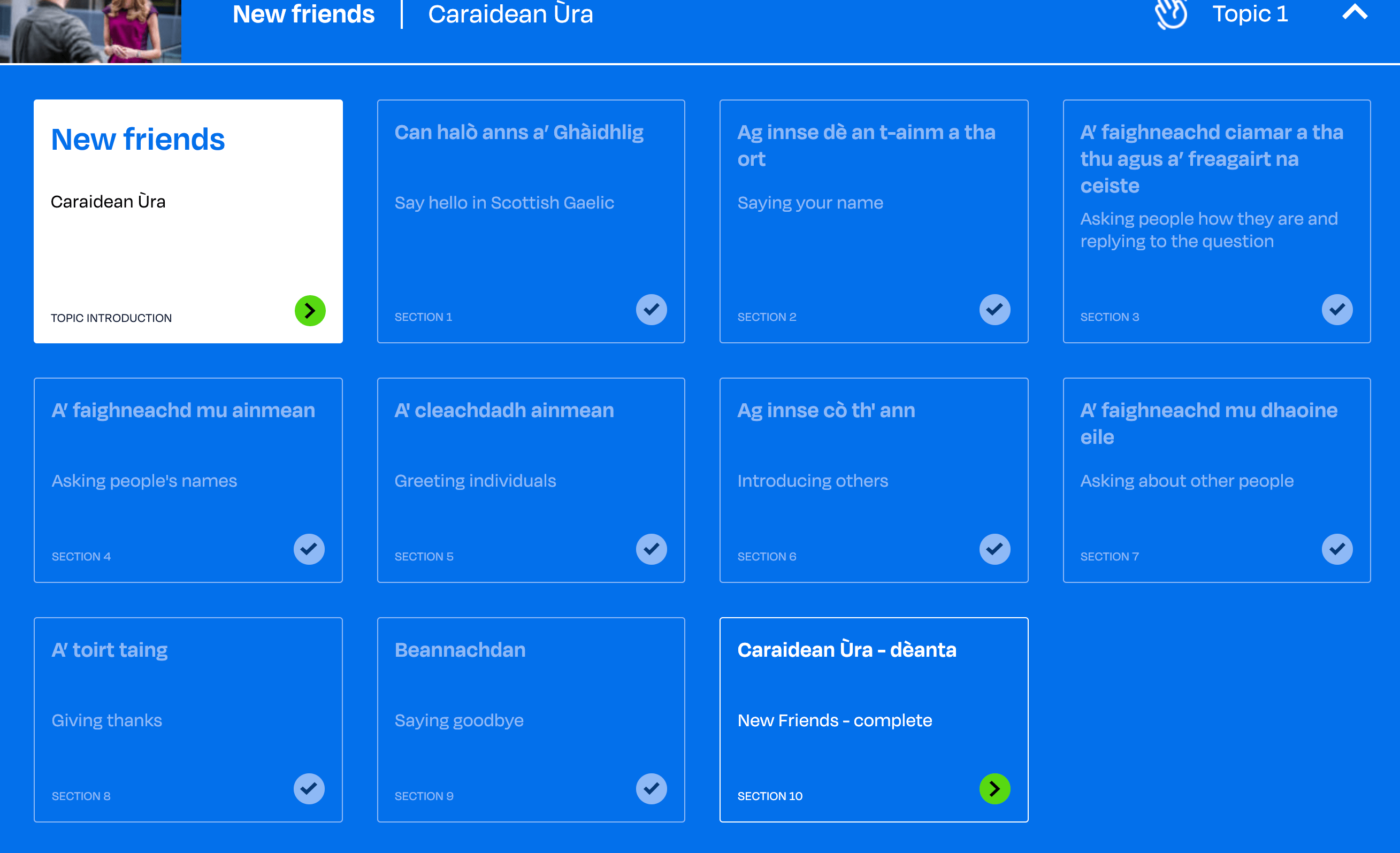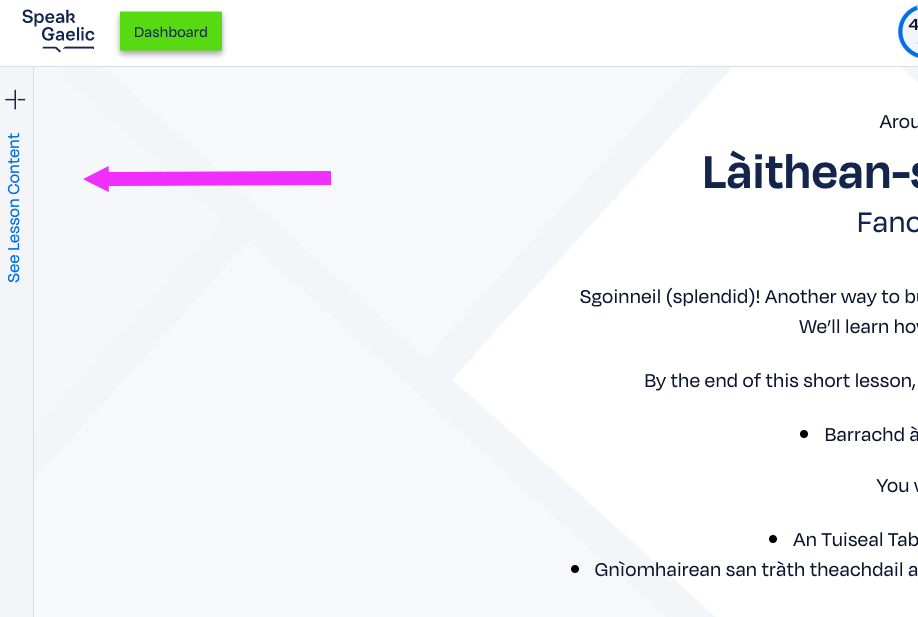Ag imrich agus a' gluasad
Flitting and moving
There are two verbs we can use to discuss going to a new home: gluais (move) and imrich (flit). Remember that in Scottish English, you often hear the verb ‘flitting’ ag imrich used rather than ‘moving’ a’ gluasad and this is also true in Gaelic. We’ll take a look at useful phrases and vocabulary for flitting and the things we’ll be taking with us.
a’ pacadh (v)
packing
a’ falamhachadh (v)
emptying
eilthireach (m)
emigrant
eilthireachd (f)
emigration
a’ clìoradh (v)
clearing
a’ dèanamh deiseil
making ready
in–imriche (m)
immigrant
imreachd (f)
migration
sealbhadair (m)
owner
Emigration is very important in the history of the Highlands and of Gaelic. Gaelic exists in Canada because of emigration at the time of the Highland Clearances and before. Why don’t you try reading this yourself, or if you have a friend who’s learning Gaelic, why don’t you read this together?
Nuair a choimheadas sinn air imrich nan Gàidheal a Charolina chì sinn dà rud a tha gu math bunaiteach ann an eachdraidh nan eilthireach Gàidhealach. An toiseach bhiodh na Gàidheil a’ falbh ann an coimhearsnachdan. Cha bhiodh iad a’ falbh leotha fhèin, cha bhiodh na gillean òga a–mhàin a’ falbh, mar a thachair ann an Lunnainn no ann am Bristol . ‘S e bha a’ tachairt air a’ Ghàidhealtachd ach gum biodh sluagh gu lèir a’ togail orra. ‘S e sin sean agus òg, fir, mnathan, agus an cuid chloinne.
When we look at the Gaels’ migration to Carolina altogether we see two things that are quite fundamental in the history of Highland emigration. Firstly the Gaels left in communities. They wouldn’t leave, it wasn’t just the young men that would leave, as happened in say London or in Bristol. What happened in the Highlands was that all the folk would set off. That is old and young, men, women, and their children.
You can look at this video clip on LearnGaelic.scot:




